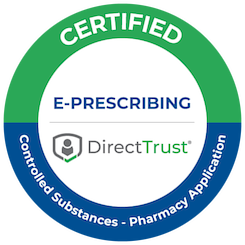The world of long term care and assisted living facilities is complex and ever-evolving, with the primary goal of providing quality care to residents. One crucial aspect of this care is medication management. Enter the pharmacist consultant, an indispensable resource for these facilities. Pharmacist consultants are specialized, licensed pharmacists who collaborate with long term care and assisted living facilities to optimize medication therapy, minimize risks, and enhance patient outcomes.
In recent years, the need for pharmacist consultants has grown, primarily due to the increasing complexity of medication regimens and the heightened focus on patient safety. By providing expert guidance on medication management, these professionals play a pivotal role in enhancing the quality of care for residents, reducing medication errors, and ensuring regulatory compliance. This article will explore the role of pharmacist consultants in long term care and assisted living facilities and delve into the numerous benefits they bring to the table.
The Role of a Pharmacist Consultant in Long Term Care and Assisted Living
Pharmacist consultants wear many hats in the realm of long term care and assisted living. Their primary responsibility is to collaborate with facility staff, physicians, and other healthcare professionals to develop, implement, and monitor medication therapy plans for residents. This involves conducting comprehensive medication reviews, assessing the appropriateness of medication orders, and identifying potential drug interactions or contraindications.
In addition to medication management, pharmacist consultants also serve as educators for facility staff. They provide crucial information on medication administration, storage, and disposal, ensuring that staff members are well-versed in best practices. Additionally, pharmacist consultants help facilities maintain compliance with federal and state regulations, such as the Centers for Medicare & Medicaid Services (CMS) guidelines, by conducting audits and inspections, and offering recommendations for improvement.
Lastly, pharmacist consultants play a vital role in managing medication waste, otherwise known as LTC drug destruction. They assist facilities in properly disposing of unused, expired, or discontinued medications, thereby reducing environmental impact and ensuring adherence to waste disposal regulations.
Importance of Education and Training for Pharmacist Consultants
Pharmacist consultants possess a unique set of skills and expertise, acquired through years of education and training. To become a pharmacist consultant, one must first complete a Doctor of Pharmacy (PharmD) degree from an accredited pharmacy program. This typically involves four years of postgraduate education, including coursework in pharmacology, pharmacokinetics, and pharmacy law, as well as hands-on clinical experiences.
Upon completion of their PharmD degree, aspiring pharmacist consultants must then pass the North American Pharmacist Licensure Examination (NAPLEX) and obtain a state-specific license to practice pharmacy. Many pharmacist consultants also choose to pursue additional training and certification in geriatric pharmacy, such as the Board Certified Geriatric Pharmacist (BCGP) designation, to further enhance their knowledge and skills in caring for older adults.
Ongoing education and professional development are also critical for pharmacist consultants. They must stay current with the latest advancements in pharmacotherapy, regulatory changes, and best practices in long term care and assisted living environments. This commitment to lifelong learning enables pharmacist consultants to provide the highest level of care for residents and maintain a cutting-edge approach to medication management.
Benefits of Pharmacist Consultant Services in Long Term Care and Assisted Living Facilities
Pharmacist consultants bring a myriad of benefits to long term care and assisted living facilities, ranging from improved medication management to enhanced patient outcomes.
a. Improving Medication Management
One of the primary benefits of pharmacist consultant services is their ability to optimize medication management within long term care and assisted living facilities. By conducting comprehensive medication reviews and collaborating with healthcare professionals, pharmacist consultants ensure that residents receive appropriate, safe, and effective medication therapy. This not only improves the overall quality of care but also reduces the risk of adverse drug events and medication-related problems.
b. Reducing Medication Errors
Medication errors are a significant concern in long term care and assisted living facilities, as they can lead to adverse outcomes for residents. Pharmacist consultants play a crucial role in reducing these errors by identifying potential issues, such as drug interactions, duplicate therapy, or improper dosing, and offering guidance on how to rectify them. Additionally, pharmacist consultants educate facility staff on best practices for medication administration, storage, and disposal, further reducing the likelihood of errors.
c. Enhancing Patient Outcomes
Pharmacist consultants not only focus on medication management but also on enhancing patient outcomes. By optimizing medication therapy and reducing medication errors, pharmacist consultants directly contribute to improved health and well-being for long term care and assisted living residents. Furthermore, their expertise in geriatric pharmacy allows them to tailor medication plans to the unique needs of older adults, thereby ensuring that residents receive the most appropriate and effective care possible.
d. Ensuring Regulatory Compliance
Long term care and assisted living facilities are subject to a myriad of federal and state regulations, including stringent medication management guidelines. Pharmacist consultants help facilities navigate these complex regulations by conducting audits and inspections, identifying areas of non-compliance, and offering recommendations for improvement. Their expertise in pharmacy law and best practices ensures that facilities maintain compliance and avoid costly penalties or sanctions.
LTC Drug Destruction: How Pharmacist Consultants Help Manage Medication Waste
Proper medication waste management is a critical component of long term care and assisted living facilities’ operations. Pharmacist consultants play a vital role in overseeing LTC drug destruction, ensuring that facilities dispose of unused, expired, or discontinued medications in an environmentally responsible and legally compliant manner. They provide guidance on proper disposal methods, such as incineration or rendering medications unusable and unrecognizable, and assist facilities in developing waste management policies and procedures. By managing medication waste effectively, pharmacist consultants help facilities reduce their environmental impact and maintain compliance with waste disposal regulations.
LTC Medication Overviews: The Role of Pharmacist Consultants in Medication Optimization
Long term care and assisted living residents often have complex medication regimens, which require careful management and monitoring to ensure optimal outcomes. Pharmacist consultants play a crucial role in this process by conducting LTC medication overviews, or comprehensive medication reviews, to assess the appropriateness of medication orders and identify potential issues, such as drug interactions or contraindications.
These overviews involve a thorough examination of each resident’s medication profile, including prescription and over-the-counter medications, as well as dietary supplements and herbal products. By identifying potential issues and offering guidance on how to optimize medication therapy, pharmacist consultants contribute to improved patient outcomes and overall quality of care.
Building Relationships Between Pharmacists, Long Term Care Facilities, and Assisted Living Communities
Successful medication management in long term care and assisted living facilities is a collaborative effort, requiring strong partnerships between pharmacists, facility staff, and healthcare professionals. Pharmacist consultants foster these relationships by serving as a trusted resource for medication-related information, guidance, and support.
By working closely with facility staff and healthcare professionals, pharmacist consultants facilitate open communication and information-sharing, leading to better-informed decision-making and ultimately, improved patient care. Moreover, their presence in long term care and assisted living communities helps to create a culture of safety and accountability, where medication management is a top priority for all stakeholders.
Case Studies: Pharmacist Consultants Making a Positive Impact in Long Term Care and Assisted Living Facilities
Numerous case studies demonstrate the substantial impact that pharmacist consultants can have on long term care and assisted living facilities. For example, one study found that pharmacist consultant-led medication reviews resulted in a 31% reduction in the number of medications prescribed to residents, leading to decreased medication costs and fewer adverse drug events. Another study found that pharmacist consultant services contributed to a 66% reduction in medication errors, highlighting their crucial role in promoting patient safety.
These case studies underscore the significant value that pharmacist consultants bring to long term care and assisted living facilities, by optimizing medication management, reducing medication errors, and enhancing overall patient outcomes.
How to Find and Select the Right Pharmacist Consultant for Your Facility
Finding and selecting the right pharmacist consultant for your long term care or assisted living facility is critical to achieving optimal medication management and patient care. When searching for a pharmacist consultant, consider factors such as their education, training, and experience, particularly in geriatric pharmacy. Look for professionals who hold specialized certifications, such as the Board Certified Geriatric Pharmacist (BCGP) designation, as this indicates a high level of expertise in caring for older adults.
Additionally, seek out pharmacist consultants who have a track record of success in long term care and assisted living environments, as evidenced by case studies or testimonials from satisfied clients. Finally, consider the consultant’s communication skills and ability to collaborate effectively with facility staff and healthcare professionals, as these traits are essential for fostering strong partnerships and achieving the best possible patient outcomes.
Conclusion: The Lasting Impact of Pharmacist Consultants in Long Term Care and Assisted Living Facilities
Pharmacist consultants play a vital role in long term care and assisted living facilities, providing expert guidance on medication management, reducing medication errors, and enhancing patient outcomes. By collaborating with facility staff, healthcare professionals, and residents, these specialized pharmacists contribute to improved quality of care and a safer, more effective medication management process.
With their commitment to education, training, and ongoing professional development, pharmacist consultants bring a wealth of knowledge and expertise to long term care and assisted living communities. As the need for their services continues to grow, it is clear that pharmacist consultants will remain an indispensable resource for these facilities, helping to unlock the benefits of optimal medication management and improved patient care.
Pharmcare USA’s team of experienced consultants work with our clients to assess their medication management processes and identify areas for improvement. We then develop tailored plans that address these areas, utilizing our extensive knowledge of best practices and industry standards. Schedule a consultation to learn more about how we can help your facility.




